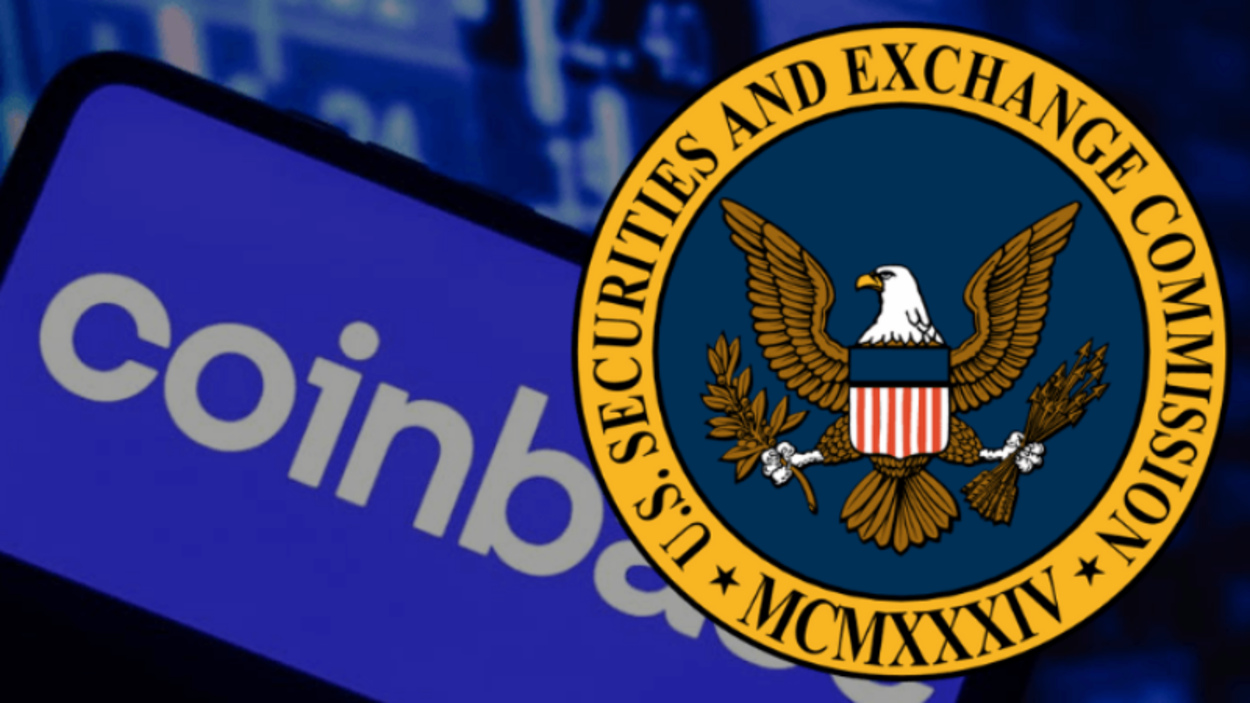Join Our Telegram channel to stay up to date on breaking news coverage
Hostile regulation of the US crypto industry by the Securities and Exchange Commission (SEC) risks losing four million jobs by 2030 as it forces web3 development overseas, and it’s already slashed America’s market share of web3 development.
That’s according to an analysis by crypto exchange Coinbase, which says the SEC’s strategy of regulation by enforcement risks one million developer jobs and three million non-technical jobs over the next seven years.
Uncertainty caused by the regulatory crackdown has already seen the US’s share of web3 development plunge to 29% from 40% in the past five years, and is pushing jobs and opportunity offshore, it says. On average the US is losing almost 2% of web3 market share every year, forcing high-quality, well-paid jobs to leave the US to locations with a more welcoming regulatory environment, it added.
SEC Continues Enforcement Approach Even After Legal Defeats
”This enforcement-only approach continues despite courts having ruled against the SEC in a number of high-profile cases,” it said. “This enforcement-only approach continues despite 52 million people — or one in five Americans — owning crypto.”
68% of Blockchain jobs are now in Europe.
This isn't accidental.
It is the result of political will, leadership, openness to opportunity and policymakers taking responsibility and doing the job they were elected or appointed to do.
— Coinbase 🛡️ (@coinbase) September 7, 2023
SEC Falls Behind
Coinbase says US regulators lag behind other nations, and estimates that 83% of major financial hubs in the world are doing more to establish greater regulatory clarity for the crypto industry.
The UK is on track to create a regulatory framework for cryptocurrencies with the Financial Services and Markets Bill completing its passage through Parliament, while the EU adopted its Markets in Crypto-Assets (MiCA) regulation to bring regulatory clarity to its 27 member states, the report said.
Meanwhile outside the US, new crypto regulation around the industry seems to be happily received by industry in the EU (MiCA), UK (Financial Services and Markets Bill), Japan (Payment Services Act) and Dubai (Virtual Assets Regulatory Authority guidelines), as examples.
— Iantoons (@iantoons_) September 13, 2023
Hong Kong development a regulatory framework for crypto that went into effect in June as it strives to retain its status as a global financial centre and three regulators in the United Arab Emirates have developed regulatory frameworks to become a global crypto hub, it added.
Hong Kong has also made strides in regulating its crypto industry by developing a framework for governing cryptocurrencies that became effective in June. The city has focused its efforts on becoming a major financial hub and has succeeded in attracting massive adoption among its citizens.
And in Japan Prime Minister Fumio Kishida included web3 as part of his administration’s ”new capitalism” economic policy that’s designed to drive growth and innovation.
“The US has a real chance to be the innovation leader in the future of the crypto economy, but only if it can get the regulations right,” it said. “We cannot afford to spend billions of dollars begging to bring the crypto industry back to American soil, like we’ve done with the chip industry and American manufacturing in general.”
Praise For SEC Crackdown
Coinbase is up against some formidable opponents, who argue that the SEC’s crackdown is needed to protect investors and build solid foundations for a cleaner, better crypto industry in the future.
Senator Sherrod Brown, chairman of the influential Senate Committee on Banking, Housing, and Urban Affairs, lambasted crypto at a hearing on the oversight of the industry regulator on Sept.12.
“It seems like every day, before and after the collapse of FTX, there is another crypto scam, hack, or insider taking advantage of people,” said Brown. “That’s because the problems we saw at FTX are everywhere in crypto – the failure to provide real disclosure, the conflicts of interest, the risky bets with customer money that was supposed to be safe. FTX was just the biggest and the ugliest.”
At the same hearing, SEC chair Gary Gensler showed no signs of softening his stance toward the crypto industry, saying it it has “wide-raging non-compliance” issues and that most crypto tokens are securities.
“It’s not surprising that we’ve seen many problems in these markets,” he said. “We’ve seen this story before. It’s reminiscent of what we had in the 1920s before the federal securities laws were put in place.”
Blue Chip US Companies Also Want Regulatory Clarity
Still, Coinbase says there’s overwhelming evidence that blue chip American companies are also behind its call for the establishment of a regulatory framework that gives clarity to the crypto industry.
It says 87% of surveyed Fortune 500 executives indicate clear crypto rules are vital for sustaining US leadership in the global financial system, and 92% agree that policymakers should develop new rules for these technologies, instead of enforcing older rules developed for older technologies.
It adds that 52% of companies are holding off on investment in the industry entirely until regulation is established while 46% say regulatory murkiness is a barrier to investment.
Related Articles
- Coinbase CEO Brian Armstrong Urges DeFi Companies to Sue CFTC
- CoinEx Hot Wallets Drained Of $55 Million in Hack Linked To North Korea’s Lazarus Group
- Binance.US Cuts a Third Of Staff, CEO Departs As Regulatory Storm Shrinks Revenues
Best Wallet - Diversify Your Crypto Portfolio
- Easy to Use, Feature-Driven Crypto Wallet
- Get Early Access to Upcoming Token ICOs
- Multi-Chain, Multi-Wallet, Non-Custodial
- Now On App Store, Google Play
- Stake To Earn Native Token $BEST
- 250,000+ Monthly Active Users
Join Our Telegram channel to stay up to date on breaking news coverage


